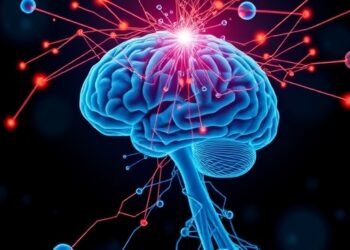In a new UCLA-led study, investigators shed light on the intricate processes underlying cancer evolution and define the optimal algorithms to analyze the genetic makeup of tumors.
In a new UCLA-led study, investigators shed light on the intricate processes underlying cancer evolution and define the optimal algorithms to analyze the genetic makeup of tumors.
The findings, published in Nature Biotechnology, details new online resources that help scientists select the best algorithms for analyzing tumor evolution, enhancing diagnostic accuracy and treatment planning.
Understanding the evolution of tumors is crucial for treating cancer. Tumors with more genetic diversity tend to be harder to treat and more likely to resist therapy. The timing of specific mutations can also affect how well treatments work.
To better measure the evolution process, scientists use subclonal reconstruction algorithms to analyze DNA sequencing data from tumors, which leads to a better understanding of how cancers start, grow, and respond to treatment and provides valuable insights for diagnosis and treatment strategies.
This method, which involves complex mathematical and computer algorithms, has become an important tool for better understanding and tracking the cancer evolution process. However, dozens of algorithms have been developed for this task, and until now, it has been unclear which are the most accurate and when they work well. This uncertainty has become a barrier to wider clinical adoption.
“Subclonal reconstruction results can vary substantially from algorithm to algorithm,” said Adriana Salcedo, a computational biologist in human genetics at the David Geffen School of Medicine at UCLA and co-first author of the study. “We want to be able to better understand how experimental and algorithm choices can be optimized for a particular task at hand that can help scientists who are developing these algorithms, as well as people who are just applying these algorithms to their own studies so they can choose the best one for their purpose and then in turn can interpret the results in a more informed way.”
To see which algorithm is the most accurate for different tasks, Salcedo and other UCLA investigators put together a global consortium. This group launched a seven-year effort called the ICGC-TCGA DREAM Somatic Mutation Calling — Tumor Heterogeneity and Evolution Challenge. Groups around the world used cloud-computing to benchmark seven different aspects of tumor evolution, with 12,061 total analyses.
Analyzing this data, Salcedo found that only a few tumor characteristics significantly influenced the accuracy of reconstruction algorithms. While some experimental factors like the quality of sequencing data and tumor purity played a role, the choice of algorithm was more important than the characteristics of the tumor itself in determining accuracy.
They also found no single algorithm performed best on all tasks and standard approaches for combining multiple algorithms didn’t improve accuracy significantly.
“We were surprised that the algorithm itself was so important,” said Paul Boutros, professor of urology and human genetics at the David Geffen School of Medicine at UCLA, director of cancer data science at the UCLA Health Jonsson Comprehensive Cancer Center and co-senior author of the study. “This gives immediate practical insight to researchers on how they translate research, clinical trials and ultimately fully predict the complexities of cancer evolution.”
Since different algorithms are best at different subtasks of subclonal reconstruction, the team provided online tools to help users choose the most appropriate one for their datasets and question of interest.
The team is now working to figure out where current techniques can be improved to better represent the ongoing changes in cancer cells and make better cancer evolution simulators. There is also a need for guidance into where new artificial intelligence efforts are needed to improve the ability to measure cancer evolution.
“By unraveling the complexities of tumor dynamics through innovative computational methods, we can predict where the cancer is going to evolve,” said Boutros. “And by knowing where it will go, we can design treatments that stop the cancer from ever becoming lethal.”
Boutros also serves as the interim vice dean for research at the David Geffen School of Medicine at UCLA, associate director of cancer informatics at the UCLA Institute for Precision Health and is a member of the Eli and Edythe Broad Center of Regenerative Medicine and Stem Cell Research. The study’s other co-senior author is Peter Van Loo from MD Anderson Cancer Center. The study’s other co-first author is Maxime Tarabichi, from the Francis Crick Institute.
The research was supported in part by Prostate Cancer Canada, the Movember Foundation and the National Institutes of Health.
Journal
Nature Biotechnology
Article Title
Crowd-sourced benchmarking of single-sample tumor subclonal reconstruction




